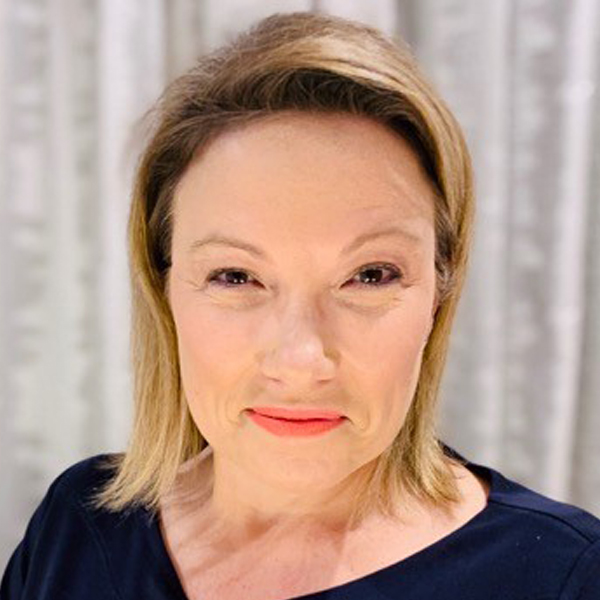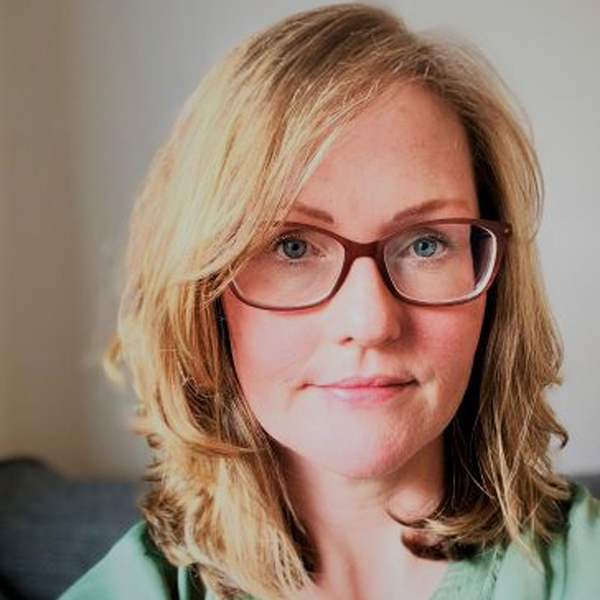Since the year 2000, Breast Cancer Network Australia (BCNA) has run the internationally recognized consumer representative program, Seat at the Table (SATT). This program recruits, trains, appoints and supports people with breast cancer to work as consumer representatives with clinicians, researchers, health service providers and policymakers.
BCNA’s work in this area has provided a model for consumer participation that has relevance to other cancers and to the general health field. There have also been many requests for BCNA to extend its consumer advocacy training so that it is relevant to a wider audience.
In 2019, BCNA commenced a two-year project to innovate and improve the accessibility of the existing training model from a three-day intensive face-to-face training program to a blended learning approach comprising online learning courseware and workshops, and to tailor and extend access to women with a personal experience of gynaecological cancer. This project was supported by funding from the Australian Government Department of Health.
Guided by a reference group of BCNA Consumer Representatives, BCNA undertook a formative approach to pilot testing, evaluation and refinement of the revised training program for people affected by breast cancer.
The revised training program comprised the following three online courses, which were developed, and pilot tested with a group of consumers across December 2019 – February 2020:
- Who is BCNA?
- The Science of Breast Cancer
- The Role of the Cancer Consumer Representative
The courses were then refined and optimised based on reference group, learner and other stakeholders’ feedback, and BCNA ran the training across October-December 2020. The self-directed learning was done at the participants’ own pace with clear timelines for completion and was supplemented by a series of online group workshops. Feedback was sought on an ongoing basis as well as via an evaluation survey.
During 2020, BCNA also worked with staff from the Bowtell Laboratory at Peter MacCallum Cancer Centre to develop a consumer representative training program for ovarian cancer survivors. BCNA commissioned Deakin University to undertake an evaluation of both training programs.[i]
The evaluation of BCNA’s revised Consumer Representative training program found the training to be ‘engaging, informative and efficient for participants.’ Participants found the three courses and the embedded material such as links, podcasts/videos useful in the learning process. Comparison of the level of knowledge participants had pre- and post-course completion showed improvements (generally from fair to high) in most areas covered in the three courses. Participants provided suggestions for additional training topics, how aspects of the Learning Management System (LMS) could be enhanced to enable greater ease of use and noted the importance of having ongoing access to training material. BCNA has valued this feedback and will maintain an approach of continual improvement to ensure the training remains responsive and relevant to leaner needs.
“I felt really valued by the BCNA team…”
I learned a lot, I found the online learning and the workshops really interesting and informative, and I felt really valued by the BCNA team – and I expect other participants would have felt exactly the same. That is quite an exceptional achievement given the training program had to be run virtually. I think BCNA is an exemplar in terms of educating and engaging its consumer network – other organisations could learn a lot from how you do it. It undoubtedly reflects a huge amount of hard work, expertise, and genuine commitment from the team at BCNA.
The ovarian cancer consumers’ experiences with the online courses were also positive. The design of the courses, including interactive learning components, learning checks and videos, were all seen to assist learning. Trainees made suggestions about aspects of the LMS which could be altered to enable greater ease of navigation and noted the benefits of having ongoing access to training materials.
There is a big difference between consumer contribution and offering consumer expertise through training development and mentorship. By complementing the lived experience with technical knowledge, tools and strategies offered through formal training programs, credible pathways are created that professionalise the role of health consumers.
“It has reframed my personal story…”
‘As someone having had breast cancer, my personal objective was to find meaning, to share my experience and give back somehow. However, that objective, and my perspective, have both changed since becoming a recognised consumer representative, that extends beyond my disease and my personal story. It has reframed my personal story into a compelling and informed opinion that can then offer alternative solutions and influence decisions. ‘
‘Becoming a consumer representative also embodies connectedness, knowingness, humanness, and hope. I now have the privilege of representing every one of the 20,000 women, men and families who will be affected by breast cancer this year, and every person still impacted by cancer years after finishing treatment. My voice now speaks for others in the hope that it creates improvements in patient experiences. That instead of being a box to be ticked on an engagement checklist, I can be formally recognised as a policy adviser, a thought leader, a quality assurer, a teacher.
The BCNA’s Lisa Morstyn and Amanda Winiata contributed to this article.
Reflections from BCNA Consumer Representative Jodie Lydeker
Consumers bring a richness of diverse experiences, backgrounds, and perspectives, but collectively, we just want to help answer the question that we all inevitably ask: “Does it have to be this hard?”. This collective action is what makes formal consumer training so much more powerful – it creates diverse professional networks that recognise we cannot create system change alone. The SATT program has quite literally opened the door for me to sit at the table with federal politicians and senior leaders as part of the conversation about how the health system can do better.
At the most basic level, patients are people. And systems are made up of people. Change can only come about through people making different, informed decisions. Trained consumers can add capability and diversity to organisations or teams and provide context that may otherwise be absent. Implementation science frameworks that examine the effective implementation of evidence-based interventions in health settings now formally recognise this a critical enabler supporting implementation, but also a barrier if consumers are not active participants in the delivery of health care.
From the Health Consumers Forum, there was a growing sense that a revolution is coming. It was acknowledged that to truly give effect to the commitments of co-design and consumer-led care, consumers not only need a seat at the table, but that we’ve earned the right to have a vote when the decisions are being made. How else can the health system achieve its goal of being re-engineered around prevention, not just treatment; from being designed around people, not just patients, and from actively seeking out consumers as a valued expert, not just a story-teller.
Let us, the people who have lived through it, let us be the ones to help make better choices.
Somewhere between Obama and Oprah, it is well accepted that we can all do more than we think we can, but we can’t do it alone.
About the authors
 Vicki Durston is Director of Policy and Advocacy at national consumer breast cancer organisation, Breast Cancer Network Australia (BCNA). She leads BCNA’s strategic direction around its policy and advocacy priorities and represents those affected by breast cancer at a state and national level. She sits on a range of taskforce and committees, including a number which relate to the challenges breast cancer consumers faced during the COVID-19 pandemic. Vicki has 27 years’ experience in public and private healthcare and has broad clinical, operational and strategic management experience within a complex health environment in both Victoria and NSW.
Vicki Durston is Director of Policy and Advocacy at national consumer breast cancer organisation, Breast Cancer Network Australia (BCNA). She leads BCNA’s strategic direction around its policy and advocacy priorities and represents those affected by breast cancer at a state and national level. She sits on a range of taskforce and committees, including a number which relate to the challenges breast cancer consumers faced during the COVID-19 pandemic. Vicki has 27 years’ experience in public and private healthcare and has broad clinical, operational and strategic management experience within a complex health environment in both Victoria and NSW.
 Jodie Lydeker is a lawyer by training and has spent over 20 years in the public sector leading state-wide legal and social policy reforms and independent reviews across the areas of criminal justice, human services, mental health and anti-corruption. But a diagnosis of invasive breast cancer 3 years ago at the age of 40 has since created a new pathway into public health. Jodie is currently working as an executive in the Victorian health department’s COVID-19 response division. Outside of work, Jodie is a proud consumer representative with BCNA, having graduated the Seat at The Table program in December 2020, and has keen interests in psychosocial oncology, service navigation and integrative cancer care models.
Jodie Lydeker is a lawyer by training and has spent over 20 years in the public sector leading state-wide legal and social policy reforms and independent reviews across the areas of criminal justice, human services, mental health and anti-corruption. But a diagnosis of invasive breast cancer 3 years ago at the age of 40 has since created a new pathway into public health. Jodie is currently working as an executive in the Victorian health department’s COVID-19 response division. Outside of work, Jodie is a proud consumer representative with BCNA, having graduated the Seat at The Table program in December 2020, and has keen interests in psychosocial oncology, service navigation and integrative cancer care models.
[i] White, Victoria, Morstyn, Lisa and Winiata, Amanda. (2021). Ensuring the consumer voice is heard in treatment, policy and research discussions: Implementing the renewed SATT program: Evaluation Report.
